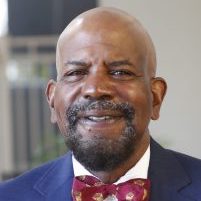 The University of Connecticut has established The Cato T. Laurencin Institute for Regenerative Engineering. Regenerative engineering is a field founded by Dr. Laurencin, a University Professor and the Albert and Wilda Van Dusen Distinguished Endowed Professor of Orthopaedic Surgery at the University of Connecticut. It is the convergence of advanced materials sciences, stem cell science, physics, developmental biology, and clinical translation for the regeneration of complex tissues and organ systems.
The University of Connecticut has established The Cato T. Laurencin Institute for Regenerative Engineering. Regenerative engineering is a field founded by Dr. Laurencin, a University Professor and the Albert and Wilda Van Dusen Distinguished Endowed Professor of Orthopaedic Surgery at the University of Connecticut. It is the convergence of advanced materials sciences, stem cell science, physics, developmental biology, and clinical translation for the regeneration of complex tissues and organ systems.
The new institute will focus on musculoskeletal research. The institute will integrate biology, medicine, surgery, chemistry, physics, engineering, and artificial intelligence/machine learning to create a powerful platform for addressing scientific and medical problems in the regeneration and healing of complex tissues, organs, or organ systems. Its goal is to achieve limb regeneration by the year 2030.
Dr. Laurencin is the former dean of the School of Medicine at the University of Connecticut. In 2016, he was awarded the National Medal of Technology and Innovation. Dr. Laurencin is the founding editor-in-chief of the Journal of Racial and Ethnic Health Disparities. He is the author of Success Is What You Leave Behind: Fostering Leadership and Innovation (Academic Press, 2021).
Dr. Laurencin is a graduate of Princeton University, where he majored in chemical engineering. He is a magna cum laude graduate of Harvard Medical School and holds a Ph.D. in biochemical engineering and biotechnology from the Massachusetts Institute of Technology.











